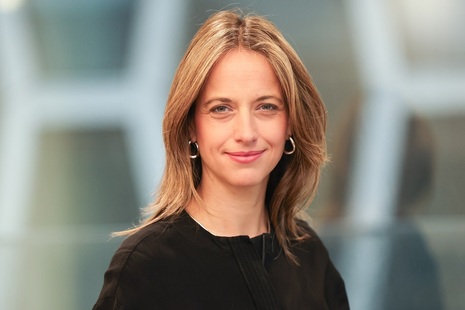Cutting-edge AI avatars are breaking ground in the UK’s social care sector by ushering in a transformative era of staff training. These avatars, digital entities mirroring real-life trainers, are being trialled with the intention of mitigating the pressing workforce deficits. The brainchild of social care provider and healthtech trailblazer Cera, these avatars extend a multilingual welcome to new staff, imparting diverse skills, including the crucial ability to identify stroke symptoms.
With the potential to instruct around 20,000 fresh caregivers annually if adopted nationwide, Cera’s founder lauds this innovation as both thrilling and pioneering. Although a private entity, Cera predominantly engages in delivering social care on behalf of the NHS and local authorities, ensuring avatar-trained personnel will bolster healthcare provisions across the spectrum.
Embarking on a pilot phase in London and the South East this month, this endeavour is poised to have skilfully guided approximately 60 fledgling caregivers by August’s close. According to Skills For Care, the authoritative body for adult social care workforce development in England, there were an estimated 152,000 unfilled social care positions between April 2022 and March of this year.
Dr. Ben Maruthappu, Cera’s visionary founder and CEO, envisions a future where avatars facilitate the training of “thousands of people a day at low or no cost,” all the while preserving the reassuring familiarity of local Cera teams. In an exclusive conversation with the PA news agency, Dr. Maruthappu exudes optimism, deeming this AI integration as a “high-impact use” of artificial intelligence.
He asserts, “At a pivotal juncture for social care, marked by mounting pressures on the NHS and care sector, innovative solutions become imperative to engender sustainability. With an ageing population and escalating waiting lists, technologies like this assume the responsibility of alleviating these burdens sustainably.”
Spearheading the adoption, Sarah Craven, Cera’s operational lead in the pilot zone, stands as the inaugural staff member to greet her virtual counterpart. She affirms, “Those drawn to social care are inherently driven by the desire to nurture. Any measures to expedite onboarding in a secure and efficient manner are enthusiastically embraced.”
Craven candidly unveils her wish for omnipresence, stating, “In a sprawling region like ours, I’ve often yearned to simultaneously welcome newcomers and support existing teams. This virtual solution brings me as close as possible to that aspiration.”
While Age UK, an advocate for older citizens, extends hope toward AI’s potential to enrich training, it cautiously stipulates that AI “can’t fully substitute for in-person instruction and support.” When queried about the fate of human trainers in this era of technological revolution, Dr. Maruthappu affirms the perpetual need for hands-on care and training.
As he asserts, “Certain aspects, like demonstrating manual patient handling, inherently require in-person guidance.” Dr. Maruthappu contends that a blend of in-person and online training already exists, but the inclusion of avatars elevates online training to a personalised realm.
In the reckoning of Age UK’s Director, Caroline Abrahams, synchronisation with technological strides is indispensable for the social care sector. While intrigued by the avatar concept, she underscores the enduring importance of hands-on training in people-centric vocations.
Abrahams expounds, “The imperative for the social care sector to harness technological advancements, including AI, is evident. Responsible and astute integration promises heightened productivity. Still, the essence of social care as a ‘people job’ implies that hands-on instruction remains irreplaceable.”
Similarly, the Association of Directors of Adult Social Services (Adass) aligns with this perspective, advocating a diverse approach to training. Cathie Williams, joint chief executive of Adass, articulates, “Digital technology’s potential is undeniable, yet the training landscape must accommodate various learning styles. No singular approach can cater to all needs.”
Williams emphasises that training’s ultimate goal is the cultivation of exceptional care founded on profound human interactions. She opines, “Quality care derives from robust human relationships, which enable holistic well-being rather than mere survival during times of support need.”
This groundbreaking leap forward finds resonance with social care minister Helen Whately’s endorsement of AI and voice technologies as catalysts of innovation. These transformative tools, epitomised by voice-controlled virtual assistants, signify a departure from administrative burdens, potentially granting caregivers more time to tend to the needs of those they serve.






